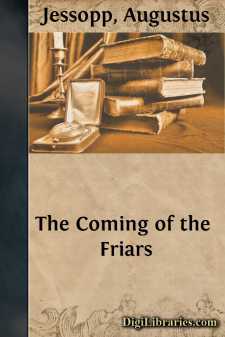History
- Africa 30
- Americas (North Central South West Indies) 50
- Ancient 68
- Asia 58
- Australia & New Zealand 8
- Canada 41
- Caribbean & West Indies 1
- Civilization 20
- Eastern Europe 12
- Europe
- Expeditions & Discoveries 60
- General 77
- Historical Geography 1
- Jewish 9
- Latin America 3
- Medieval 8
- Middle East 13
- Military 248
- Revolutionary 8
- Study & Teaching 5
- United States 353
- Western Europe 56
- World 13
Europe Books
Sort by:
Our Sailors. “Let fall the topsails, hoist away—up anchor, round goes the capstan—sheet home—haul taut the braces! and away we glide, to prove to our countrymen that British sailors have not been sleeping on beds of roses for the last quarter of a century since her gracious Majesty Queen Victoria came to the throne.” So wrote our author some forty years ago. “Up anchor, full speed ahead,”...
more...
The Sea is His: He made it,Black gulf and sunlit shoalFrom barriered bight to where the longLeagues of Atlantic roll:Small strait and ceaseless oceanHe bade each one to be:The Sea is His: He made it—And England keeps it free. By pain and stress and strivingBeyond the nations' ken,By vigils stern when others slept,By lives of many men;Through nights of storm, through dawningsBlacker than...
more...
THE TUDOR PERIOD, 1485-1603 [Sidenote: An era of Revolutions] The historian of the future will, perhaps, affirm that the nineteenth century, with the last years of the eighteenth, has been a period more fraught with momentous events in the development of the nations than any equal period since the Christian era commenced. Yet striking as are the developments witnessed by the last four generations, the...
more...
THE PROTESTANTS. Where changes are about to take place of great and enduring moment, a kind of prologue, on a small scale, sometimes anticipates the true opening of the drama; like the first drops which give notice of the coming storm, or as if the shadows of the reality were projected forwards into the future, and imitated in dumb show the movements of the real actors in the story.Prelude to the...
more...
I. THE PROLOGUE. 1. Nennius, the lowly minister and servant of the servants of God, by the grace of God, disciple of St. Elbotus,* to all the followers of truth sendeth health. * Or Elvod, bishop of Bangor, A.D. 755, who first adopted inthe Cambrian church the new cycle for regulating Easter. Be it known to your charity, that being dull in intellect and rude of speech, I have presumed to deliver these...
more...
PREFACE. Once more I come before the public with a work on the history of a nation which is not mine by birth. It is the ambition of all nations which enjoy a literary culture to possess a harmonious and vivid narrative of their own past history. And it is of inestimable value to any people to obtain such a narrative, which shall comprehend all epochs, be true to fact and, while resting on thorough...
more...
by:
Augustus Jessopp
THE COMING OF THE FRIARS. Sweet St. Francis of Assisi, would that he were here again!—LordTennyson. When King Richard of England, whom men call the Lion-hearted, was wasting his time at Messina, after his boisterous fashion, in the winter of 1190, he heard of the fame of Abbot Joachim, and sent for that renowned personage, that he might hear from his own lips the words of prophecy and their...
more...
INTRODUCTION. Fox’s “History of the Reign of James II.,” which begins with his view of the reign of Charles II. and breaks off at the execution of Monmouth, was the beginning of a History of England from the Revolution, upon which he worked in the last years of his life, for which he collected materials in Paris after the Peace of Amiens, in 1802—he died in September, 1806—and which was first...
more...
ON the eighteenth of January 1691, the King, having been detained some days by adverse winds, went on board at Gravesend. Four yachts had been fitted up for him and for his retinue. Among his attendants were Norfolk, Ormond, Devonshire, Dorset, Portland, Monmouth, Zulestein, and the Bishop of London. Two distinguished admirals, Cloudesley Shovel and George Rooke, commanded the men of war which formed...
more...
by:
Hilda T. Skae
CHAPTER I There was a time, many years ago, when this England of ours was a savage country. The oldest stories that we read about our island happened so long ago, that the English had not yet come to the land where we live. In those days, the country was not called England but Britain; and the people were the ancient Britons. In the time of the Britons, the greater part of the country was covered with...
more...











